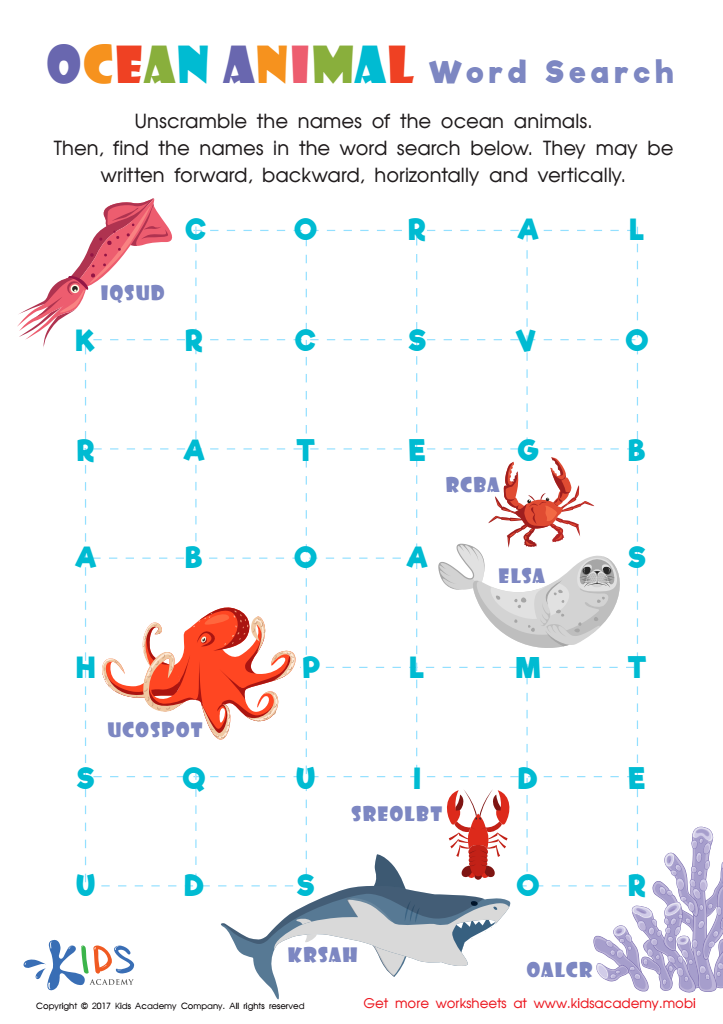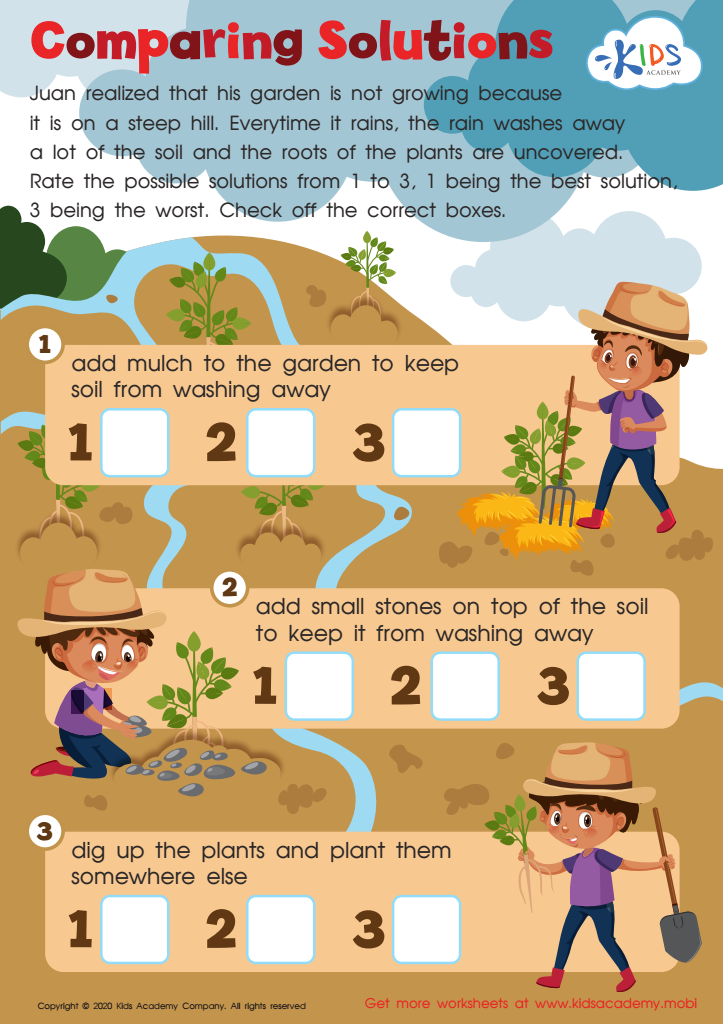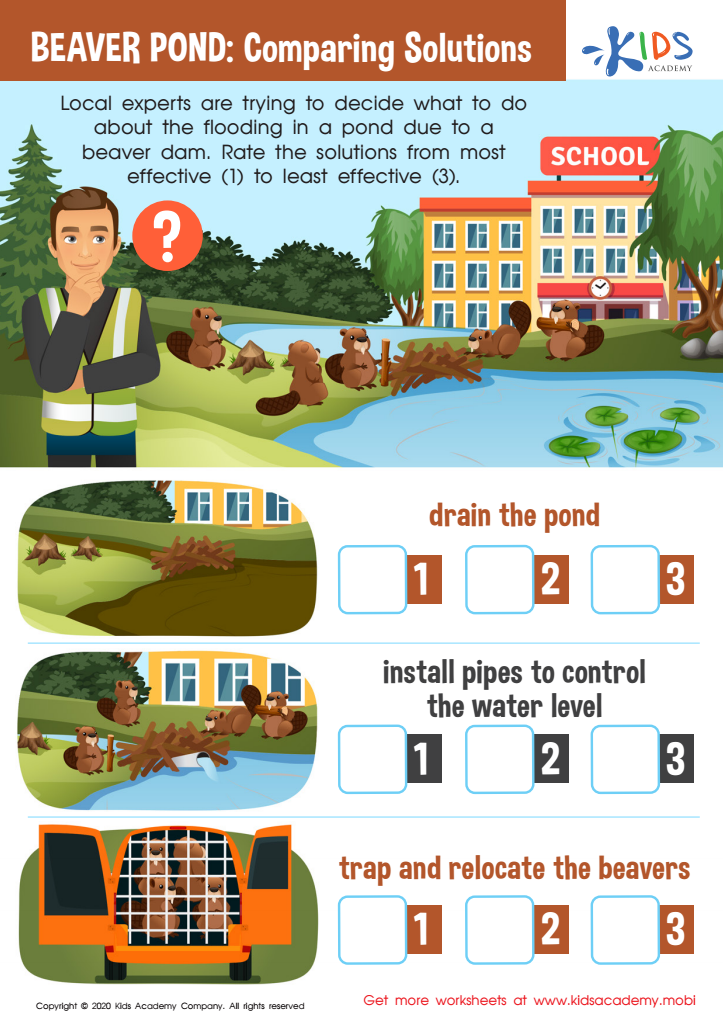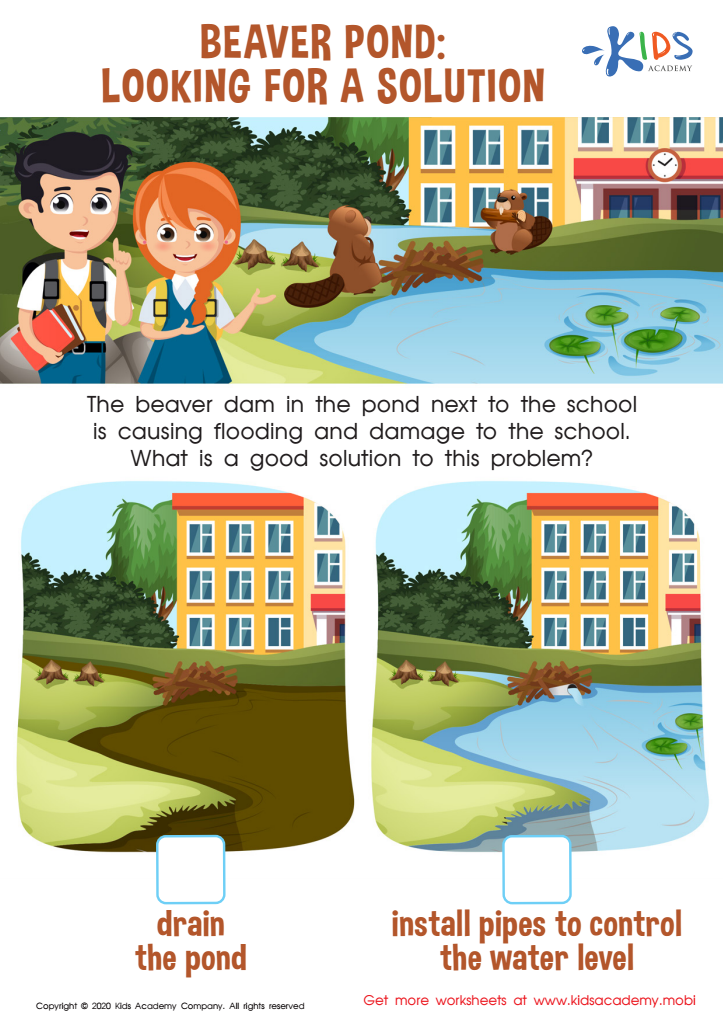Problem-Solving Skills Life Science Worksheets for Ages 5-9
4 filtered results
-
From - To
Explore our engaging Problem-Solving Skills Life Science Worksheets for ages 5-9 at Kids Academy! These printable resources are designed to boost young learners' critical thinking and problem-solving abilities through fun, educational activities. Covering various life science topics, each worksheet encourages children to observe, analyze, and make informed decisions. Suitable for both classroom and home use, these worksheets provide an interactive way to learn about living organisms, habitats, ecosystems, and more. Help your child develop essential skills and a love for science with our expertly designed problem-solving life science worksheets.


Ocean Animals Word Search Printable


Comparing Solutions Worksheet


Beaver Pond: Comparing Solutions Worksheet


Beaver Pond: Looking for a Solution Worksheet
Problem-solving skills in life sciences are crucial for children aged 5-9, as they lay the groundwork for analytical thinking and curiosity about the natural world. Fostering these skills equips kids with the tools to explore, question, and understand their environment, which can enhance their overall learning experience. By engaging in problem-solving activities related to life sciences, children improve their cognitive abilities like critical thinking, reasoning, and decision-making.
These skills are also transferable to other academic subjects and real-life situations, making them integral for holistic development. When children face questions about how plants grow, what animals need to survive, or how the weather influences daily life, they learn to observe scientifically, hypothesize, and experiment. This method not only boosts their confidence but also encourages a scientific mindset from an early age, which is invaluable in today’s rapidly evolving world.
Moreover, nurturing problem-solving skills in life sciences fosters a sense of responsibility toward nature and the environment. As children learn about living organisms and ecosystems, they develop respect and empathy for other life forms, thereby promoting sustainable behaviors. Overall, parents and teachers should prioritize these skills as they are essential for academic success, personal growth, and the development of future responsible global citizens.
 Assign to My Students
Assign to My Students




















